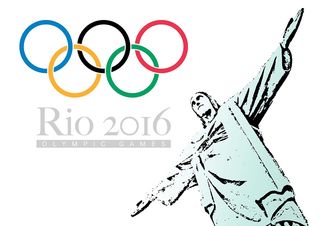Sport and Competition
The Dark Side to the 2016 Olympics
Behind the luster, ugly truths about the games
Posted August 17, 2016
With the recent mugging at gunpoint of four U.S. swimmers at the site of the 2016 Olympics in Rio, some cracks appear to be fracturing the veneer of the games. In fact, some reports suggest that “a handful of incidents…have brought Rio’s safety into question” (Patterson, 2016, para 10). Beyond the issue of safety, however, there has always been a dark side to the Olympics.
First, there is the toll that hosting such a large event takes on the host city, from the perspective of the economy to resources to how the population is treated at the sites to security, etc. Leading up to the games in Rio, for instance, there were a number of protests on the state of the economic crisis and calls for boycotting the nearly 20-day extravaganza. In fact, much of the legacy of the scope and pageantry of the Olympics today can be traced back to when Hitler hosted the event in Berlin in 1936. For instance, the legendary torch was pioneered by the Nazi regime in 1936, beginning a ritual that continues to the present day, with little recognition of the origin of the practice by mainstream media.
Hitler also set up the games as a massive propaganda opportunity for his regime. He pioneered the extravagance and lavish construction that marks the games to the present day, spending millions of dollars to erect a state of the art stadium and other statues and monuments. For instance, the United States Holocaust Memorial Museum shares:
The Nazis made elaborate preparations for the August 1–16 Summer Games. A huge sports complex was constructed, including a new stadium and state-of-the-art Olympic village for housing the athletes. Olympic flags and swastikas bedecked the monuments and houses of a festive, crowded Berlin. (“Holocaust Encyclopedia,” 2016, para 5)
In fact, such a national stage was used to push forward the Nazi propaganda machine:
For two weeks in August 1936, Adolf Hitler's Nazi dictatorship camouflaged its racist, militaristic character while hosting the Summer Olympics. Softpedaling its antisemitic agenda and plans for territorial expansion, the regime exploited the games to bedazzle many foreign spectators and journalists with an image of a peaceful, tolerant Germany. (“Holocaust Encyclopedia,” 2016, para 18).
One writer reflects on the toll that the games has the potential to take on Brazil when writing, “Rio is no different. Another major tournament has been thrust on the nation before the economic and social scars of the World Cup had healed. A recent poll showed that 63 percent of the Brazilian population believe that the Olympics will do more harm to the country than good” (Joseph, 2016, para 16).
Of course, this doesn’t even include the fact that the International Olympic Committee refused to take action after evidence emerged that Russian athletes were participating in a massive state sponsored doping campaign (e.g. Eror, 2016). Indeed, in alluding to the Berlin games and the corruption of the OIC, one writer reflects:
It’s ironic that sports organizations like the Olympic Committee and FIFA often bemoan the politicization of sports, yet by courting horrible dictators like Aliyev and giving them a platform to nurture their global profile (just as Hitler did with the 1936 Olympics) while ignoring their fascistic tendencies, they are making a very clear political decision: that money triumphs over morals. (Eror, 2016, para 22).
This doesn’t even take into account the often unrealistic and relentless standards imposed on the competitors, many of whom are young, impressionable, and under heavy pressure. Take, for instance, women’s gymnastics, described by a former gymnast in New York magazine:
Rather, today, we know more about the complexities behind the spandex and scrunchies: the sport’s history of sexual and emotional abuse, its amplification of adolescent body-image problems, and its complicated coach-gymnast relationships. The sport’s obsessive focus on the body and self-presentation is like kerosene poured on the flame of female adolescent self-scrutiny…I’ve even wondered if watching gymnastics today is like watching the NFL in an era when we know its true price. (O’Rourke, 2016, para 2).
All of this is to note that we should not just mindlessly consume these games without reflecting on their history, the consequences for host cities and individual athletes, and the ways in which these more complex and often darker issues are swept under the rug in the lead up to the pageantry and excitement that the games bring.
As one blogger reflects, “the sporting triumphs of individual athletes are sold as victories for entire nations while national infrastructure crumbles” (Eror, 2016, final para). Perhaps it is time for us to consider the legacy of the Olympics, and to confront some of the uglier realities that mainstream media has thus far ignored with their coverage in Rio.
Eror, A. (2016, August 2). The dark side of the Olympics that no one talks about. Highsnobiety. Retrieved on August 17, 2016 from: http://www.highsnobiety.com/2016/08/02/olympics-dark-side/
Holocaust Encyclopedia (2016, July 2). The Nazi Olympics Berlin 1936. United States Holocaust Memorial Museum. Retrieved on August 17, 2016 from: https://www.ushmm.org/wlc/en/article.php?ModuleId=10005680
Joseph, R. (2016, August 2). The dark side of Rio Olympics. The Week. Retrieved on August 17, 2016 from: http://www.theweek.in/news/sports/the-dark-side-of-rio-olympics.html

O’Rourke, M. (2016, July 25-August 7). The ethics of watching gymnastics. New York Magazine. [Print]
Patterson, T. (2016, August 15). Ryan Lochte, 3 other U.S. swimmers robbed in Rio. CNN: Olympic Games 2016. Retrieved on August 17, 2016 from: http://edition.cnn.com/2016/08/14/sport/us-swimmers-ryan-lochte-robbed-r...
Copyright 2016 Azadeh Aalai




